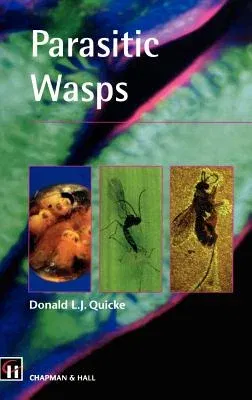The parasitic Hymenoptera are a highly successful and important group of
insects comprising probably over a million species. Despite the vast
amount of research that has been carried out on the group over the last
100 years or so, there are still many unexplained aspects of their
biology. In recent years interest in the parasitic Hymenoptera has grown
as a result of the increasing demand for biological methods for pest
control and their possible use as natural enemies. Parasitic wasps are
also tremendously important in research on pollution dynamics and on
host-parasite interactions.
In this unique volume Donald Quicke provides an up-to-date review of the
biology of parasitic wasps which focuses primarily on genetics,
developmental biology, physiology, anatomy and molecular biology, though
many aspects of behaviour and ecology are also covered. Attention is
drawn to the importance of both life history strategy an phylogeny to
many features of parasitic wasp biology, and exciting new areas of
research are highlighted. Parasitic Wasps provides an extensive guide
to the relevant literature.
The book will prove invaluable to researchers working on this group and
to those with broader interests in entomology, physiology, behaviour,
ecology and pest control.

